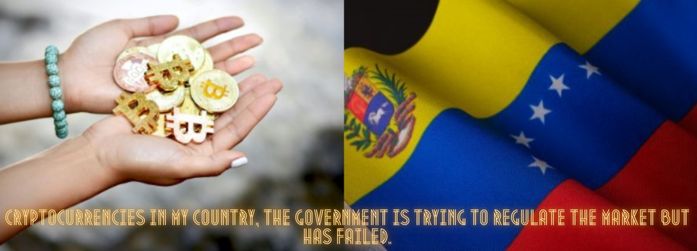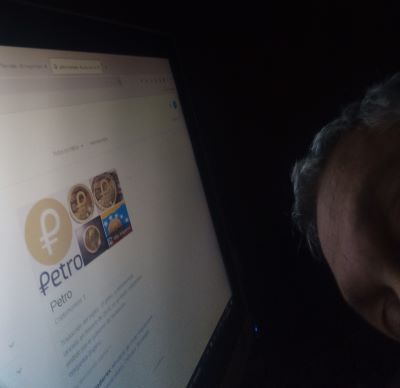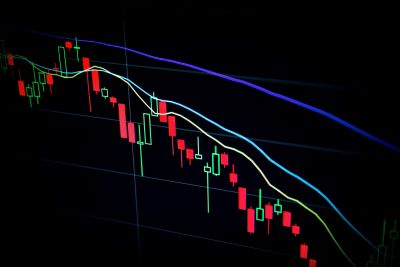
In recent years, the terms Bitcoin, cryptocurrencies and blockchain have become part of the Venezuelan lexicon.
Cryptocurrencies are an alternative payment tool. It is a way for people to preserve the value of their money. In Venezuela, between all the active exchanges, they made a technology investment of around US$20 million. There is a captive market that has been restricted, there are a number of people who used to acquire cryptocurrencies with bolivars and now they cannot do it.
However, I must say that the crypto market is dead, but it is true that it does not feel the same vigor and strength as before.
Cryptocurrencies such as Bitcoin (BTC) and Tether (USDT) have been used for commercial transactions, sending and receiving remittances and as alternatives for investment.
Investment and P2P payments with cryptoassets are more frequent and seek a solution to resist the devaluation of the bolivar and, Bitcoin mining is very popular among those seeking an additional source of income to supplement their salaries and sustain their lifestyle.
The use of cryptocurrencies was high in Venezuela , as cryptoassets were seen as a refuge from inflation, and mining (the process by which new cryptocurrency units are created using computer-generated algorithms) is also high due to the low cost of electricity.

Photo by Shubham's Web3 in Unsplash
For some years now, the Venezuelan government has been betting on the implementation and promotion of cryptocurrencies, especially one called Petro, as a measure to face the economic crisis the country is going through. However, the government's current stance on crypto has changed drastically in recent months.
Each Petro would be backed by the oil reserves of Block I of the Orinoco Oil Belt. However, the issue is that the actual collateral does not exist, since the oil backing it is hundreds of meters below the ground in an area where there is no extraction or processing.
Extracting this extra-heavy oil would cost tens of billions of dollars, which Petróleos de Venezuela (PDVSA) did not have.

Venezuela was one of the first Latin American countries to establish its own cryptocurrency oversight body, launching the National Superintendence of Cryptoassets (Sunacrip) in 2018.
The use of the petro was always scarce and was basically restricted to transactions with the State, such as the payment of taxes. This cryptocurrency functioned in practice as a value reference in the midst of chronic inflation and the constant depreciation of the bolivar which is Venezuela's local currency.
Traffic fines, for example, were established in Petros, although they could not be paid in cryptos, on the other hand, the government forced banks to present balances in bolivars and petros.
In the Platform Patria, (belonging to the government subsidizing workers and persons registered in it through discretionary bonuses and for derisory amounts) , users received transfers in petros and could exchange them into bolivars through an auction system, the only one available.
The government even announced the anchoring of salaries to the state cryptocurrency. But that promise was never fulfilled and the minimum wage currently barely exceeds the equivalent of US$3 per month.
As if that were not enough, in order to mine in the country, companies and individuals must register with the authorities in order to obtain the respective license and authorization to carry out this cryptoactivity.
Recently, it has been announced that the Petro is disappearing as a unit of account in Venezuela, which has generated uncertainty and confusion among citizens and in the cryptocurrency market. This is partly due to the sanctions imposed by the United States, which hinder economic activity related to the Petro and have limited its use in international transactions.

Photo by Maxim Hopman in Unsplash
In addition, restrictive government policies have generated a decrease in confidence in cryptocurrencies as a tool to protect and invest their wealth.
As for the crypto market, Venezuelan government policies have led to a drop in demand and trading of cryptocurrencies in the country. The uncertainty has led to investor distrust and the closure of several cryptocurrency exchanges in Venezuela, which negatively impacts market liquidity and the price of cryptocurrencies in the country.
In this context, it is important that measures are taken to move forward and regain confidence in cryptocurrencies in Venezuela. It is essential to strengthen financial and technological education in the population to encourage the proper use of cryptocurrencies and take advantage of their potential as a tool for financial inclusion and economic development.
Recently, a group of Venezuelan exchanges joined their efforts and announced the creation of the National Association of Cryptocurrency Exchange Houses and Related Activities (ACINCRIP), whose objective is to promote the development and construction of the digital currency ecosystem. This association groups all the cryptocurrency exchange houses that to date are still licensed and under supervision and control of the National Superintendence of Cryptocurrencies and Related Activities (SUNACRIP).
However, Sunacrip was closed in March 2023 when the government announced its reorganization due to a corruption scandal involving its former board of directors. This board of directors was linked to the theft of more than USD 3 billion from the Venezuelan state with funds from oil operations carried out operations not authorized by the state with cryptoassets.
The closure of the regulatory body caused chaos in the Venezuelan crypto industry, which is firmly linked to the state and has been using digital assets with resources from state-owned Petroleos de Venezuela (PDVSA) to circumvent U.S. economic sanctions. Cryptocurrency mining facilities were shut down in several states of the country.
SUNACRIP was intervened by the national government and is currently under the tutelage of a Restructuring Board awaiting the restart of its activities, so the suspension of activities left a sort of limbo for exchanges and crypto companies that run their operations based in Venezuela.
But what happened with the aforementioned superintendence, corresponds to a problem between public entities that had nothing to do with the activity of the regulated Exchange Houses.
How is it possible for citizens to trust a regulatory agency when the government itself questions the capacity and honesty of its directors?
Since the government is irremediably determined to regulate cryptoassets, what should be sought are policies that allow to generate confidence and depth in the adoption and usability of cryptocurrencies in the Venezuelan crypto ecosystem.
In my country it is necessary and urgent to establish a clear and effective regulation that promotes the responsible use of cryptocurrencies and generates a favorable environment for investment and the development of blockchain projects.

Photo by Shubham's Web3 in Unsplash
This is my third participation in the community this week, and I am developing the following topic:
Crypto News: What is your government's current stance on crypto? How is that affecting your life on the blockchain? How are these policies affecting the crypto market and in effect, your trading? What do you suggest we do to come out on top?
I look forward to reading the contents of my fellow community members regarding this topic, best regards to all and thanks for stopping by.
The collage belonging to the first image was made with the graphic editor program Canva. The images used are of free use and were taken from the internet image bank provided by Unplash, being these the respective attributions: Photo by Kanchanara in Unsplash, Photo by engin akyurt in Unsplash.
The third image is my own and was taken with my Umidigi F2 cell phone.